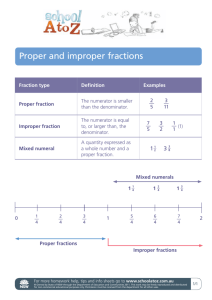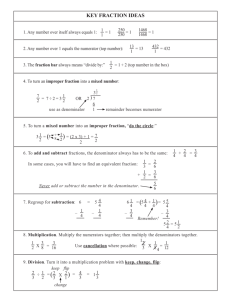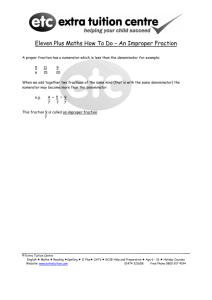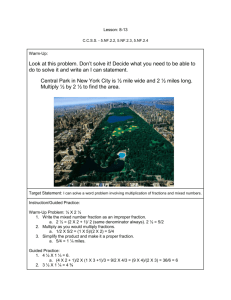Multiplication:
advertisement
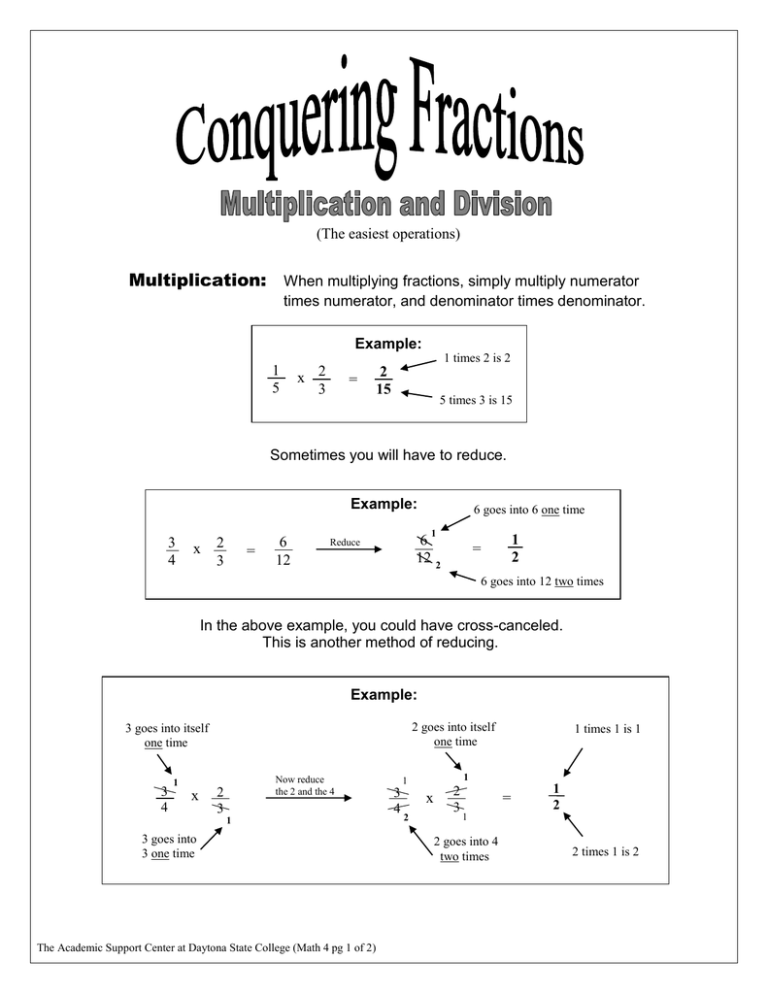
(The easiest operations) Multiplication: When multiplying fractions, simply multiply numerator times numerator, and denominator times denominator. Example: 1 5 1 times 2 is 2 x 2 3 = 2 15 5 times 3 is 15 Sometimes you will have to reduce. Example: 3 4 x 2 3 = 6 12 6 goes into 6 one time 1 6 12 2 Reduce 1 2 = 6 goes into 12 two times In the above example, you could have cross-canceled. This is another method of reducing. Example: 2 goes into itself one time 3 goes into itself one time 3 4 1 x Now reduce the 2 and the 4 2 3 1 3 goes into 3 one time The Academic Support Center at Daytona State College (Math 4 pg 1 of 2) 1 1 3 4 x 2 1 times 1 is 1 2 3 = 1 2 1 2 goes into 4 two times 2 times 1 is 2 Division: When dividing a fraction by a fraction, invert the second fraction, and then follow the rules for multiplication. Example: 1 3 ÷ 5 4 Invert the 1/5 then multiply 3 x 5 1 4 = 15 4 Notice we ended up with an improper fraction, 15/4. You can change it into a mixed fraction if you wish; however, in algebra, improper fractions are easier to work with. The next example involves the same division problem in the form of a complex fraction (a fraction within a fraction). Invert the fraction in the denominator, and then multiply. Example: 3 4 1 5 Invert the 1/5 then multiply x 5 1 3 4 15 4 = Notice when we inverted 1/5, it became 5/1, which is the same as 5 (a whole number). When multiplying fractions by whole numbers, place the whole number over 1 so that you can multiply numerator times numerator and denominator times denominator. Example: 2 7 x 2 Place 2 over 1 2 7 x 2 1 = 4 7 Practice Problems: a) 1 x 3 10 b) 5 x 3 4 6 c) 2 5 2 5 Answers to Practice Problems: The Academic Support Center at Daytona State College (Math 4 pg 2 of 2) 3 8 d) 2 x 3 a) 3/10 b) 5/8 e) c) 1 7 1 ÷ 3 9 d) 4 e) 7/3


